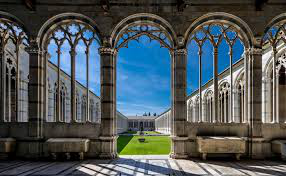CMSDAS is designed to help CMS physicists from across the collaboration to learn, or to learn more, about CMS analysis and thereby to participate in significant ways in any physics analysis including future discoveries. It enables physicists beginning analysis to easily join an ongoing analysis in a productive way. Since 2012, our first global year, schools have been held at FNAL, Pisa, Taipei, DESY, Kolkata, Bari and Korea and over 500 CMS students have now participated in the program. The format for each CMSDAS is very similar and some of the same facilitators attend each school.
A few key components of the CMSDAS School are required “homework”, assigned to registrants prior to attending the school and during the workshop sessions, emphasizing "hands on" work with CMS data. Each school starts with a morning devoted to informational plenary talks followed by the execution of a series of short and long exercises, the essential features of the school.
Prior to the school, attendees are required to complete a list of pre-exercises in order to be able to tackle more realistic problems at the tutorial sessions. They include for example, introducing CMSSW, DAS, fitting, etc. which ensures a fast start at the event.
The short exercises (several hours duration) cover all of the objects from jets to muons and many techniques from event generators to setting upper limits. They occur during the first half of the school followed by the long exercises during the second half. Long exercises are devoted to perform detailed physics measurements using CMS data in a 2.5-day intensive period by focused teams of about 6-8 students. Both, the short and long exercises are designed and facilitated by teams of 2-3 CMS experts called facilitators. Some long exercises go beyond the current state of the art of the corresponding CMS analysis. Thus providing opportunities to get plugged in to a CMS measurement through a long exercise at the school and become a part of the CMS measurement team on the paper.
Exercises will be predominantly based on ongoing Run2 analyses in various physics groups at CMS, as well as DPG tools (tracking, electron/photon, muons and jets reconstruction), Machine Learning and Statistical tools.
To register please click on the "Registration" on the left side menu.
